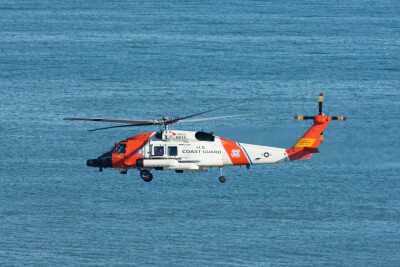Last week, the fishing industry lost a great advocate in Zeke Grader, 68. I met Zeke at our 2011 Highliner Awards ceremony in Seattle. That year we honored Larry Collins of California, but his Dungeness season kept him working instead of attending the ceremony. Zeke spoke on his behalf and used the opportunity not to get political but to praise Larry’s work off the boat to educate locals about the small-boat fishing fleet. As Zeke’s time came near, Larry reached out to me to return the favor. “We wouldn't have been fishing for the last 20 years without all his selfless work,” Larry said.
Zeke Grader, surrounded by friends and family at the June celebration of his life and career. Susan Chambers photoZeke was a one of the few constants of California fisheries. When it came time for him to step down as executive director of the Pacific Coast Federation of Fishermen’s Associations and the Institute for Fisheries Resources, a position he held for 40 years, friends, family and colleagues showed up en masse to honor him.
Zeke was one of the first fishery advocates to reach out to environmentalists in search of common goals. “He comes into a situation looking for what can be done that will benefit all sides,” said Dave Bitts, president of the federation and a 2007 NF Highliner. “He will not ever do a deal that is bad for fish.” Zeke fought for clean water, abundant fisheries and a healthy fishing fleet.
“What I recall most about Zeke was his ability to cut to the chase and fight against all odds,” said Patricia Schifferle, director of Pacific Advocates and an adviser to the federation, “demanding the water flows essential for the health of our salmon and other species essential to our fishing heritage.”
Born William F. Grader in Bellingham, Wash., Zeke was just 3 when his family moved to Fort Bragg, a California fishing and timber town. There, his uncle made fertilizer from fish scraps and his father founded Grader Fish Co., a seafood broker and processor, where Zeke worked unloading at the dock through high school.
He went on to serve in the Marine Corps, graduate from the University of San Francisco’s School of Law, and pass the notoriously challenging California bar in 1975, just before the Magnuson Act would overhaul the landscape of federal fishery management. A group of West Coast fishermen formed the PCFFA in response to the changes Magnuson would bring and named Zeke as their executive director. He essentially made it a lifetime appointment, stepping down in June of this year as his health was flagging.
“His lobbying was largely responsible for the passage of the 1988 Salmon, Steelhead Trout and Anadromous Fisheries Program Act, which called for a conservation plan to double wild salmon numbers,” said Bill Kier, a California fisheries consultant and close friend of Zeke’s. “He then used that legislation as a mandate for reforming the federal Central Valley Project… the Central Valley Improvement Act passed in 1992.”
He also helped modernize the Magnuson Act, successfully litigated to accelerate water quality restoration under the Clean Water Act, and helped protect fishing grounds by advocating for effective oil spill prevention and response policies.
“We have fairly robust fisheries on the West Coast, with mostly owner-operated, family-owned boats,” said Bitts. “This is Zeke’s legacy. That’s how it’s supposed to work, and it’s up to the rest of us to keep it that way.”
We’ll miss you, Zeke, and we’ll carry on in your honor.







